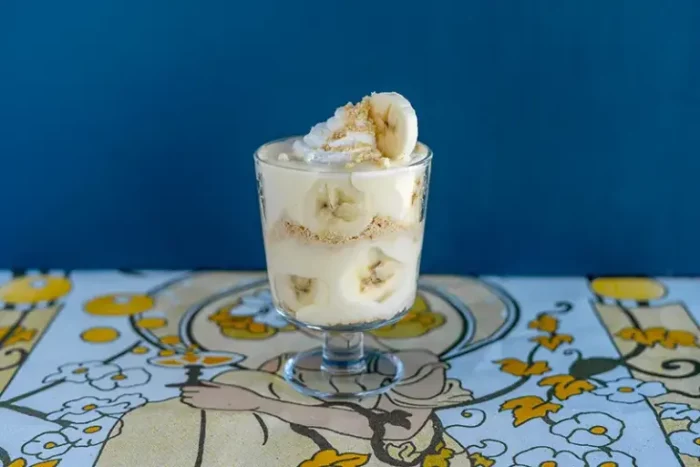Diabetes is a condition that affects how the body processes glucose (sugar), which can lead to high blood sugar levels if not properly managed. People with diabetes need to pay close attention to their diet, especially their sugar intake. As a result, many diabetics often look for alternatives to sugary drinks, like regular soda, which can cause blood sugar spikes. One such alternative is zero-sugar soda, which is marketed as a healthier choice for those looking to reduce their sugar consumption. But is zero-sugar soda good for diabetics? Let’s take a closer look.
What is Zero Sugar Soda?
Zero-sugar soda is a type of soft drink that contains no added sugar. Instead of sugar, these sodas are sweetened with artificial or non-nutritive sweeteners. These sweeteners can include aspartame, sucralose, stevia, or acesulfame potassium. They provide the sweetness of regular soda but with minimal or no calories and no impact on blood glucose levels.
How Do Artificial Sweeteners Work?
Artificial sweeteners are used in zero-sugar sodas to mimic the taste of sugar. They are many times sweeter than regular sugar, so only small amounts are needed to achieve the same sweetness level. Since these sweeteners do not significantly affect blood sugar, they are often marketed as safe for people with diabetes. Common artificial sweeteners used in zero-sugar sodas include:
- Aspartame (found in brands like Diet Coke)
- Sucralose (found in brands like Diet Pepsi)
- Acesulfame potassium (often used in combination with other sweeteners)
- Stevia (a natural sweetener used in some diet sodas)
These sweeteners pass through the digestive system without being fully absorbed, meaning they don’t provide any calories or increase blood glucose levels.
The Pros of Zero Sugar Soda for Diabetics
Low or No Calories: One of the main advantages of zero-sugar soda for diabetics is its low or nonexistent calorie content. Regular sodas are packed with sugar, which can contribute to weight gain and elevated blood sugar levels. Zero-sugar sodas, on the other hand, offer the sweet taste without the calories, making them an attractive option for diabetics who need to manage their weight and blood glucose.
Blood Sugar Control: The key concern for diabetics when choosing drinks is how the drink affects blood glucose levels. Regular soda can cause rapid spikes in blood sugar, which can be dangerous for people with diabetes. Since zero-sugar sodas contain artificial sweeteners that don’t affect blood sugar, they seem like a good alternative for people looking to avoid blood sugar spikes.
A Sweet Treat Without the Sugar: For many people with diabetes, satisfying a sweet craving is difficult when they have to avoid sugary foods and drinks. Zero-sugar sodas offer a way to enjoy a sweet drink without risking a spike in blood sugar levels. This can help people stick to their diet while still enjoying the flavors they love.
Dental Health: Unlike regular sodas, which are highly acidic and can contribute to tooth decay, zero-sugar sodas typically have less of an impact on dental health. While the acid content in these drinks can still contribute to enamel erosion, the lack of sugar means there is less fuel for the bacteria that cause cavities.
The Cons of Zero Sugar Soda for Diabetics
While zero-sugar sodas may seem like a safe option, there are some potential downsides that diabetics should be aware of.
Impact of Artificial Sweeteners on Insulin Response: Although artificial sweeteners don’t directly raise blood sugar, there is some evidence that they may affect insulin sensitivity and overall metabolic health. Some studies suggest that consuming artificial sweeteners regularly may trick the body into expecting a sugar rush, causing insulin to be released even when there is no actual glucose in the system. This could potentially lead to insulin resistance over time.
Changes in Gut Health: Research has shown that artificial sweeteners may alter the composition of gut bacteria. Some studies suggest that consuming artificial sweeteners regularly can change the balance of gut microbes, which might affect how the body processes glucose. Although more research is needed to fully understand this link, it’s something diabetics should consider when choosing what to drink.
Cravings for Sweet Foods: Drinking zero-sugar soda may not have an immediate effect on blood sugar, but it could affect long-term behavior. Some research has suggested that consuming very sweet foods and beverages, even without sugar, can lead to increased cravings for more sugary foods. This could potentially cause people with diabetes to consume more high-sugar foods and drinks, which may interfere with their blood sugar management.
Lack of Nutritional Value: While zero-sugar sodas may be calorie-free, they also lack the vitamins, minerals, and other nutrients that regular sodas may have. For example, some sodas are fortified with vitamin C or other nutrients. Zero-sugar sodas, however, are mostly devoid of any beneficial nutrients. This means that while they may not negatively affect blood sugar, they also don’t contribute to overall nutritional needs.
Potential Impact on Heart Health: Some studies have linked the consumption of diet sodas and artificial sweeteners to an increased risk of metabolic syndrome, high blood pressure, and heart disease. These findings are still being debated, and more research is needed, but the potential risks to heart health should not be overlooked, especially for people with diabetes, who are already at a higher risk for cardiovascular issues.
The Bottom Line: Should Diabetics Drink Zero Sugar Soda?
Zero-sugar soda can be a good alternative for diabetics who want to enjoy a sweet beverage without spiking their blood sugar. These sodas are low in calories, and their artificial sweeteners generally do not affect blood glucose levels in the short term. However, there are some concerns about the long-term effects of artificial sweeteners on insulin sensitivity, gut health, and cravings.
If you are diabetic and considering incorporating zero-sugar soda into your diet, here are some tips:
Moderation is Key: While it’s tempting to rely on zero-sugar sodas to satisfy cravings, they should be consumed in moderation. Drinking them in excessive amounts could potentially lead to negative side effects, including changes to your gut microbiome or insulin sensitivity.
Monitor Your Blood Sugar: Keep track of how your blood sugar responds to zero-sugar sodas. Everyone’s body reacts differently, and you may notice subtle changes in your blood sugar or overall health with regular consumption.
Focus on Whole Foods: While zero-sugar sodas can be part of your diet, it’s important not to rely on them as a primary source of hydration. Water, herbal teas, and other healthy beverages should be your main drinks. Whole foods rich in fiber, vitamins, and minerals will provide better long-term health benefits.
Be Aware of Other Health Risks: Keep in mind that while zero-sugar sodas may not raise blood glucose, they might still pose risks to other aspects of health, such as metabolism and heart health. Stay informed and consider discussing your beverage choices with a healthcare provider.
Conclusion
Zero-sugar sodas can offer a way for diabetics to enjoy a sweet-tasting drink without the harmful effects of sugar on blood glucose levels. However, the long-term health implications of consuming artificial sweeteners are still not fully understood. Like any food or drink, zero-sugar soda should be enjoyed in moderation and as part of a balanced diet. It’s essential to stay mindful of how your body reacts and prioritize whole, nutrient-dense foods and beverages for optimal health.
Related topics:

























